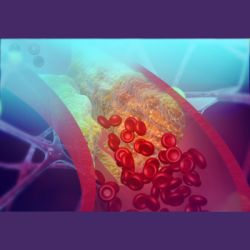Maastricht University, Philips and Medtronic jointly created an executive course for hospital managers addressing the need to improve entrepreneurialism in health care. During the course, the best Lean Sigma practices from the industry will be shared - a globally proven concept for translating strategy into concrete results with the aim of improving organizations in the longer term. Using Lean Sigma practices in the hospital environment is expected to improve the quality of patient care, increase efficiency and reduce costs within hospitals.
The executive course, which takes place in Lausanne, Switzerland, from 14-18 November 2011, is the first executive course in its kind jointly created by a medical university and the medical industry. Main themes in the course are health care trends and developments in Europe, their implications for the management of care processes, Lean Sigma, patient safety, change management and value creation. The course will be conducted by senior lecturers from Virginia Mason Institute (Seattle, WA, USA), Maastricht University, Eurocontrol, Medtronic and Philips.
Prof. Dr. Frits van Merode, Maastricht University Medical Centre: “Rising costs, measures taken by governments and growing expectations from patients are putting a lot of pressure on hospital management. For managers of European hospitals, these are difficult times. They need to critically assess the quality and costs of their processes for care delivery and engage in innovation. Practice shows that Lean Sigma enables hospitals to get prepared for the rising tide where efficiency and quality of care should go hand in hand.”
Dr. Eric Silfen, Chief Medical Officer Philips Healthcare: ”We believe co-creation initiatives by key players in health care will be essential in finding solutions for the current challenges in health care. With more than hundred years of experience in global businesses that focus on innovation, Philips has a large amount of knowledge to share which could help hospital managers to improve both quality and efficiency in their hospitals. For example, by analyzing working methods in hospitals, utilization of equipment can be optimized and waiting times for patients can be reduced. This executive course really represents a significant learning opportunity for hospital management and industry which in the end will have a positive effect on quality and patient satisfaction in hospitals.”
Richard Jansen, Director at Medtronic: “Medtronic has adopted Lean and Six Sigma management methodology within its organization more than a decade ago. During this period, we have become the largest and leading medical device company in the world: every four seconds, somewhere in the world, a person's life is saved or improved by a Medtronic product or therapy. In the last decade, we internally realized cost savings of hundreds of millions of dollars through continuously improving our internal processes and were recently named one of the fifty most innovative companies in the world by MIT's Technology Review. Medtronic is convinced of the power of Lean & Six Sigma management methodology. We strongly believe that when hospitals and industry work together on sharing best practices and jointly work on process improvement initiatives, this will return great results. We support this executive learning course, because we believe it will enable participants to start designing care processes in such a way that they can treat more patients, in a better way, requiring less budget. To demonstrate our commitment to operational excellence in healthcare, we have made funds available to allow five students to apply for free scholarships for this course.”
For more information about the executive course: www.leansigma-healthcare.com. More information about Philips education services: www.philips.com/healthcareeducation























